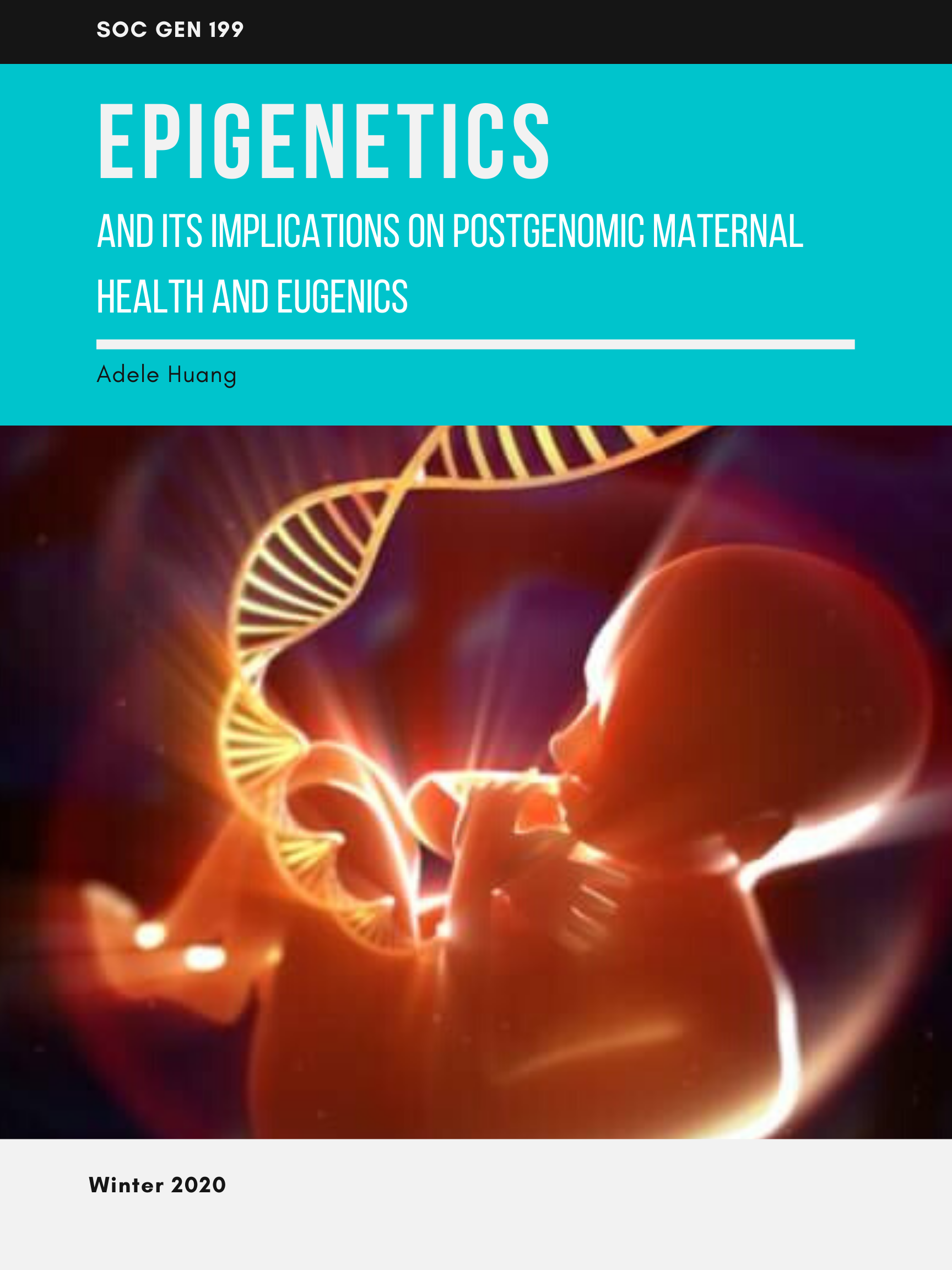Epigenetics and its Implications on Postgenomic Maternal Health and Eugenics

By: Adele Huang
Epigenetics represents an incarnation of postgenomics that challenges current concepts of race and biological plasticity where reproductive women and the fetus are becoming important frameworks for study.
Epigenetics is the new hot topic of science in the post-genomic era, where it is considered an important mechanism in the etiology of many diseases. Over the last 100 years, there have been profound conceptual discoveries on the notion of heredity that have transformed how evolutionary science is perceived and understood. In particular, the emergence of environmental epigenetics represents an incarnation of postgenomics that challenges current concepts of race and biological plasticity where reproductive women and the fetus are becoming important frameworks for study. While the emergence of epigenetics is presented as a new, non-deterministic model of biological plasticity that is deeply rooted in biology and genetics, epigenetics is also intertwined within socioeconomic and cultural situations. Although epigenetics is a relatively new science of biological and environmental variation, it has much potential to develop into a framework that can act as a molecular confluence between nature and nurture, thus providing a new foundation for understanding post-genomic science. This paper argues that epigenetics is a reproductive science with women and the uterine environment as central areas of study, with the potential to reify eugenic logic through possibilities of re-racialization and an alternative ontology of race, heredity, and biology.
comments powered by Disqus